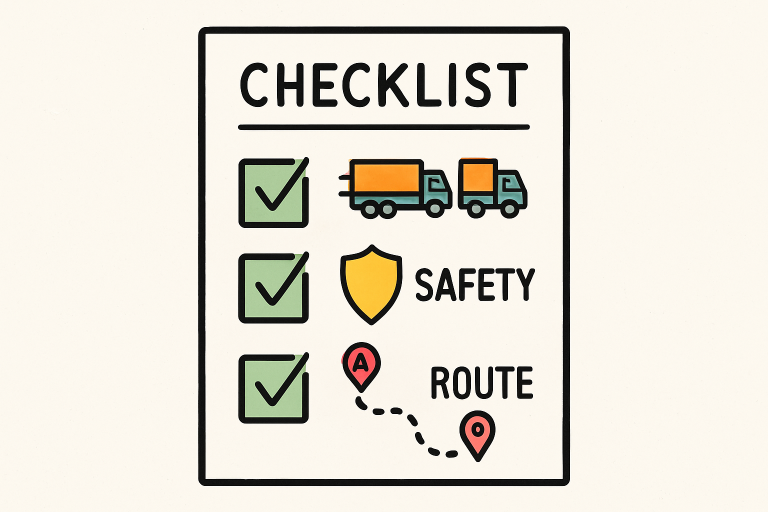Freight shipping is the backbone of global commerce, efficiently and reliably connecting businesses to suppliers and consumers across borders. As competition intensifies and customer demands evolve, choosing the right freight carrier becomes more than just a logistics decision—it directly affects your bottom line, delivery commitments, and reputation. For businesses considering shipping from California to Canada or managing any cross-border shipments, partnering with the right carrier can streamline your processes, lower risk, and enhance customer experience. The carrier you select will dictate how quickly, safely, and cost-effectively your goods travel to their destinations. Let’s look at the most important factors shaping this critical decision and how to build a supplier partnership that elevates your entire supply chain.
Reliability and Reputation
The reliability of your freight carrier directly reflects on your ability to fulfill orders accurately and on time. Any lapse, be it late deliveries or damaged goods, can harm your brand’s image and lead to costly customer churn. Investigate the carrier’s track record—check on-time delivery statistics and claim rates for lost or damaged shipments, and review third-party evaluations from reputable sources. Request client references and assess their experience with problem resolution. Consistent reliability establishes trust and minimizes disruptions in your supply chain.
Service Offerings
Not all freight carriers are equipped to handle every type of shipment. Consider your unique freight requirements—from less-than-truckload (LTL) and full truckload (FTL) to expedited, temperature-controlled, or hazardous materials shipping. Will you need white glove service, warehousing, or final-mile delivery? Matching a carrier’s offerings to your logistical needs ensures your supply chain remains seamless as your business evolves. Look for providers with broad service menus and the flexibility to customize solutions as your needs grow.
Specialized Shipping Needs
Confirm whether carriers meet specific temperature and safety certifications for sectors such as pharmaceuticals or perishables. Those handling high-value items should have advanced security protocols and insurance options. Assess whether carriers can integrate seamlessly with your preferred freight modes by road, rail, air, or intermodal transport.
Pricing Transparency
Price is always a top consideration, but true transparency goes deeper than base rates. Shippers should be wary of hidden fees, including fuel surcharges, accessorial charges, residential delivery costs, and after-hours handling. Always request detailed quotes and insist on understanding every line item. Reliable carriers will gladly explain their cost structure. This transparency prevents surprises when invoices arrive, helps you compare options accurately, and avoids overpaying for services you don’t need.
Technological Capabilities
The rapid evolution of logistics technology is transforming supply chains. Forward-thinking carriers now employ real-time shipment tracking, GPS-based fleet monitoring, and electronic data interchange (EDI) systems for seamless communication. These tools enable proactive management, reduce manual errors, and foster data-driven decision-making. Look for carriers that provide customer dashboards or APIs that offer 24/7 visibility and instant updates, vital for managing time-sensitive shipments and maintaining customer confidence.
Benefits of Real-Time Tracking
Advanced tracking increases operational transparency and empowers shippers to address delays before they escalate. If disruptions occur—like weather events or traffic snarls—immediate notifications allow you to manage expectations with your customers.
Safety Standards and Compliance
Safe freight handling, regulatory compliance, and up-to-date industry certifications are non-negotiable. Inspect carriers’ safety records through portals like the FMCSA Safety and Fitness Electronic Records system. Ensure the carrier follows proper cargo securement, has protocols for hazardous materials (if relevant), and complies with government regulations on cross-border shipments. A strong safety culture protects your business from costly legal liability and fragile goods from accidental damage.
Customer Service and Communication
Excellent customer service from your carrier is the glue that holds supply chain partnerships together. Prioritize carriers offering a dedicated customer service team, proactive shipment status updates, and prompt, solution-focused solutions to issues. Effective two-way communication reduces stress, eliminates guesswork, and guarantees that escalations or exceptions are handled swiftly and appropriately. Transparent escalation protocols demonstrate a carrier’s commitment to customer success.
Geographical Coverage and Capacity
Coverage and capacity determine whether your carrier is equipped to reliably serve all your target destinations. For businesses shipping within North America or operating cross-border, verify the strength of a carrier’s regional and international network. Can they handle high volumes during peak shipping seasons? Do they partner with reputable last-mile providers for remote or rural areas? Robust networks prevent unnecessary handoffs and shipping delays, while scalable solutions support your business growth without compromising service.
Scalability and Flexibility
Your chosen carrier’s ability to adapt and expand operations will be critical, as your shipping demands fluctuate. Confirm their surge capacity, equipment availability, and willingness to scale alongside you, ensuring a long-term partnership that evolves with your needs.
Conclusion
Freight shipping carrier selection is a strategic business move that impacts costs, reliability, and brand reputation widely. To make the best choice, weigh reliability, service menus, transparent pricing, innovative technologies, robust safety protocols, responsive service, and network breadth. By cultivating partnerships with seasoned, adaptable freight carriers, you position your business for uninterrupted growth, on-time deliveries, and enduring customer trust.

